If you ever find yourself in a situation where you need to extend your hospital stay, crafting a well-structured letter is crucial. It's important to clearly explain your circumstances while maintaining a polite and professional tone. This letter should not only articulate your reasons but also convey the necessity of additional care. Curious about how to formulate your request effectively? Let's dive in!

Patient Information
Patients often require hospital stay extensions due to underlying health conditions or complications. In many cases, medical professionals assess these situations based on parameters such as vital signs, recovery progress, and treatment plans. For instance, a patient recovering from major surgery, like a knee replacement, may need additional days for physical therapy and pain management. Documentation supporting the extension request typically includes medical records and a statement from the attending physician detailing the necessity for continued hospitalization, sometimes referencing specific therapy sessions or medications that require close monitoring. Urgency in these requests can arise, particularly in specialized units like intensive care or surgical recovery, where close medical supervision is crucial for a patient's health outcome.
Medical Justification
Patients experiencing severe health complications often require extended hospital stays for effective treatment and recovery. For instance, individuals recovering from major surgeries, such as gallbladder removal (cholecystectomy), may need additional days due to complications like infections or difficulties in pain management. Medical professionals, such as physicians or nurse practitioners, typically evaluate the patient's condition, including monitoring vital signs and conducting lab tests, to determine the necessity of prolonged care. Specific medical conditions, such as pneumonia or congestive heart failure, may also warrant an extension of stay to ensure adequate healing and stabilization before discharge. Additionally, comprehensive discharge planning involving a multidisciplinary team can facilitate a smooth transition to outpatient care once the patient's health reaches a stable state.
Proposed Extension Duration
A request for a hospital stay extension is often prompted by ongoing medical needs that require continued observation or treatment. Patients may seek an extension of their stay for various proposed durations, ranging from a few additional days to several weeks. Many factors influence the duration, including the nature of the illness, recovery progress, or the need for additional tests. In addition, hospitals often consider insurance policy coverage and physician recommendations before granting an extension, ensuring that the patient's health and safety remain paramount. Typically, this request involves documentation such as medical reports, discharge plans, and the attending physician's recommendations to justify the need for further care.
Insurance Details
In response to a situation requiring an extension of hospitalization, insurance policy information is essential. Patients often seek extensions due to ongoing treatment needs or complications related to their health conditions, such as surgeries or severe illnesses. A specific insurance plan, for instance, Blue Cross Blue Shield, typically includes limits on hospital stays, dictated by medical necessity and prior authorization protocols. Patients must gather necessary documentation, including medical records, discharge plans, and assessment from healthcare providers, to present their case effectively. Submission of a formal request, following specific procedures outlined by the insurance company, often leads to a review process that determines eligibility for extended coverage. This involves communication with hospital administration, ensuring compliance with policy stipulations and demonstrating the critical need for prolonged care.
Contact Information
A hospital stay extension request requires clear communication about the patient's condition and the necessity for prolonged care. Medical institutions, like City Medical Center, often require detailed information, including the patient's name, medical record number, and specific dates of admission. Documentation, such as the treating physician's notes and a statement outlining the reasons for the extension, is crucial. It's important to specify any ongoing treatment plans, complications, or potential recovery timelines. Ensuring this request aligns with hospital policies can facilitate a timely response, ultimately affecting the patient's health outcomes and comfort during the healing process.
Letter Template For Requesting Hospital Stay Extension Samples
Letter template of hospital stay extension request for rehabilitation purposes.
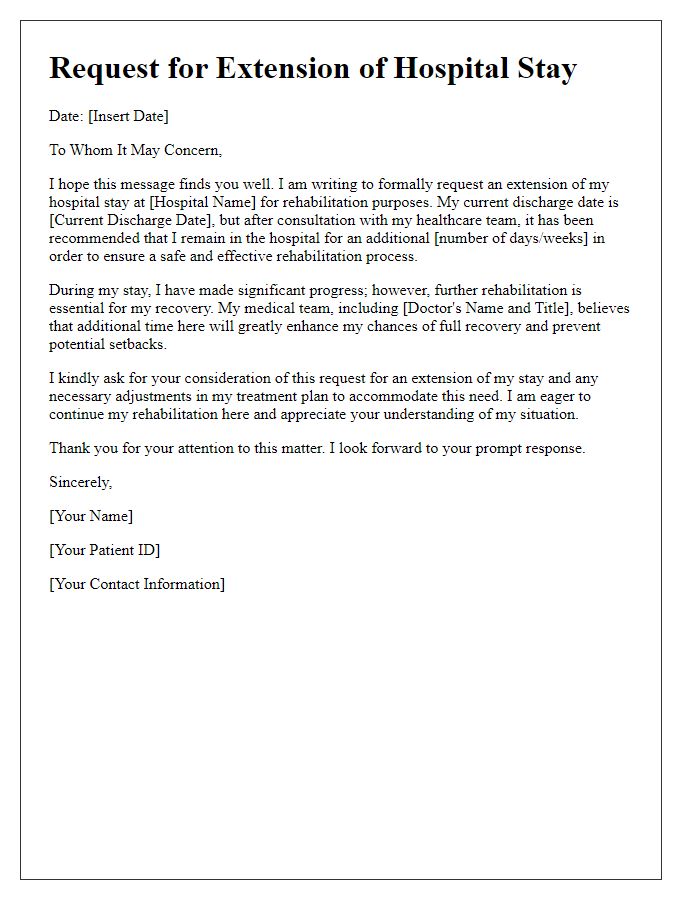
Letter template of hospital stay extension request for family health concerns.
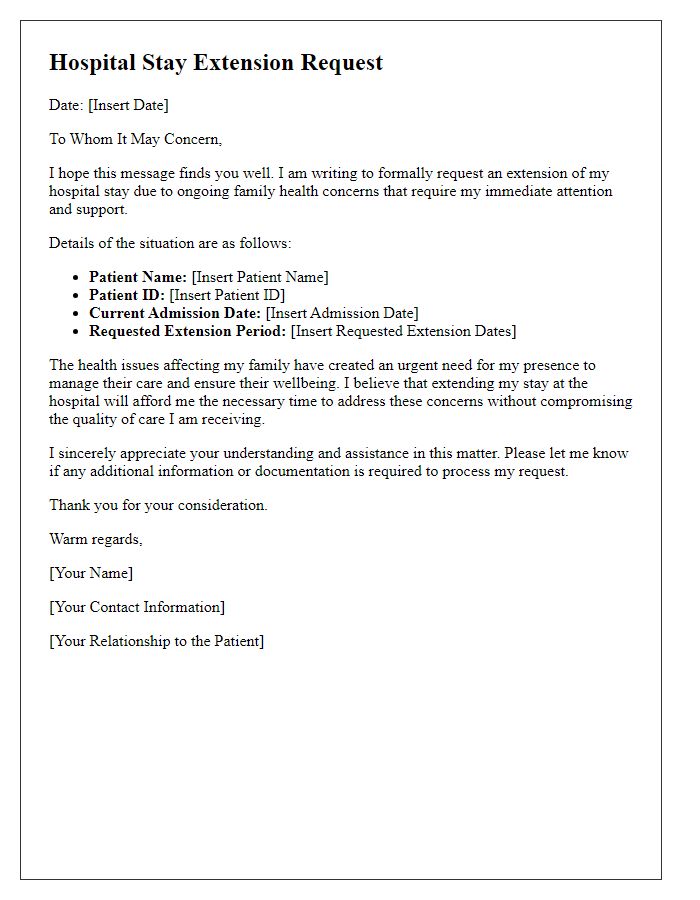
Letter template of hospital stay extension request for ongoing treatment.
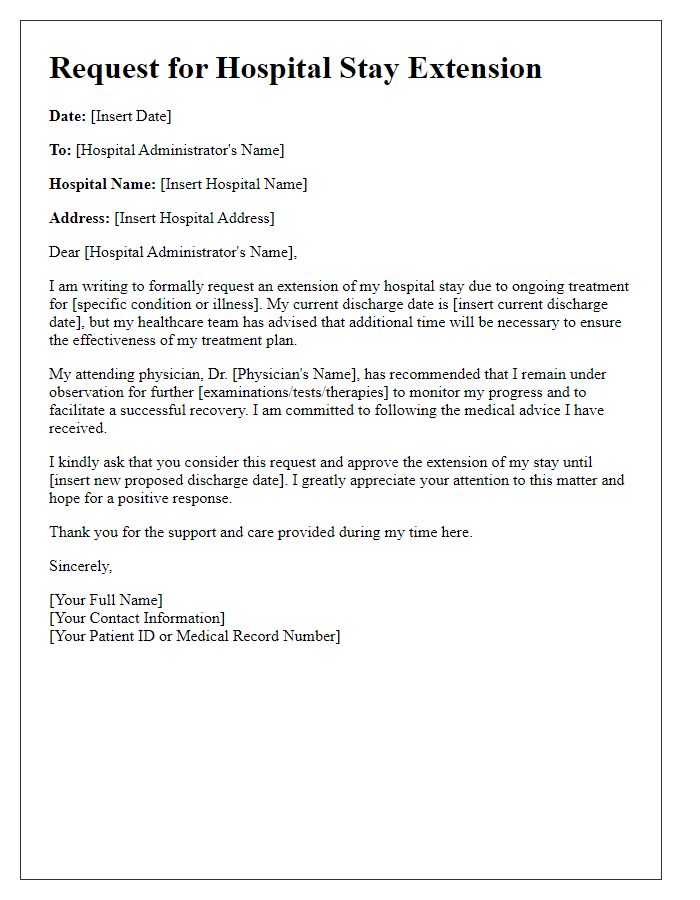
Letter template of hospital stay extension request for post-surgery recovery.
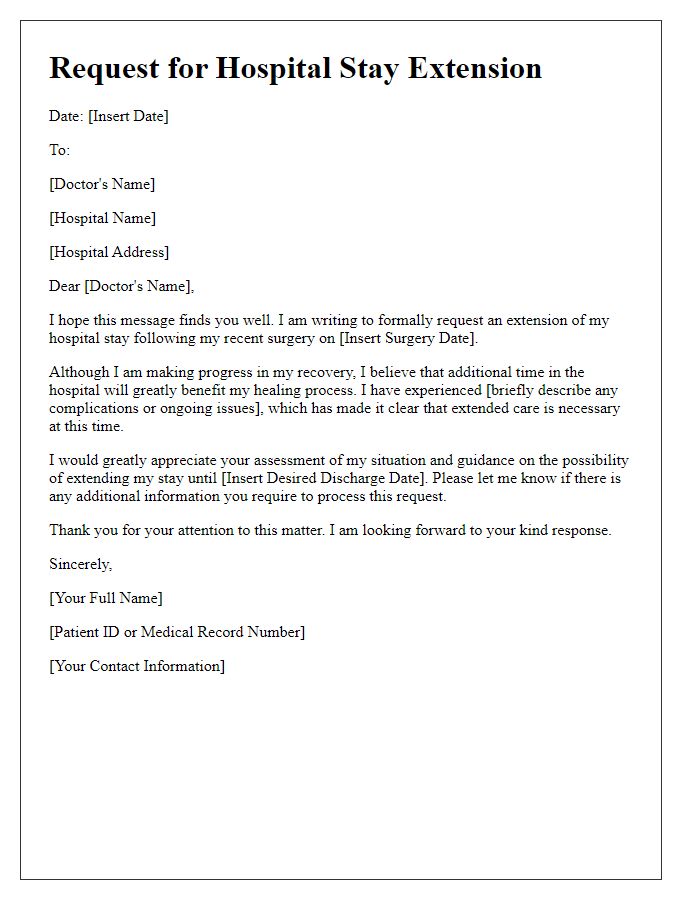
Letter template of hospital stay extension request for further observation.
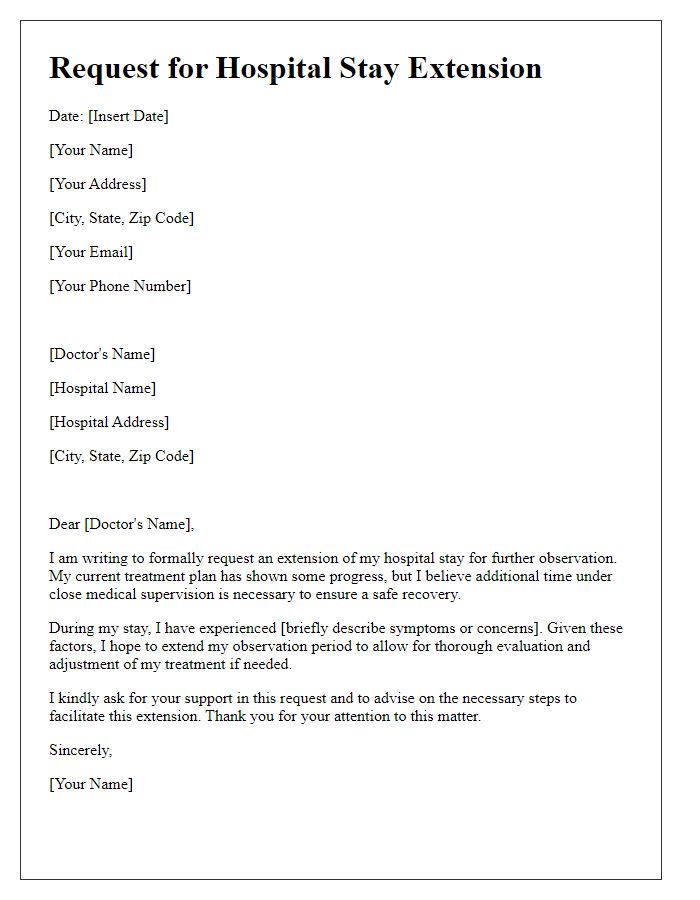
Letter template of hospital stay extension request for specialist consultation.
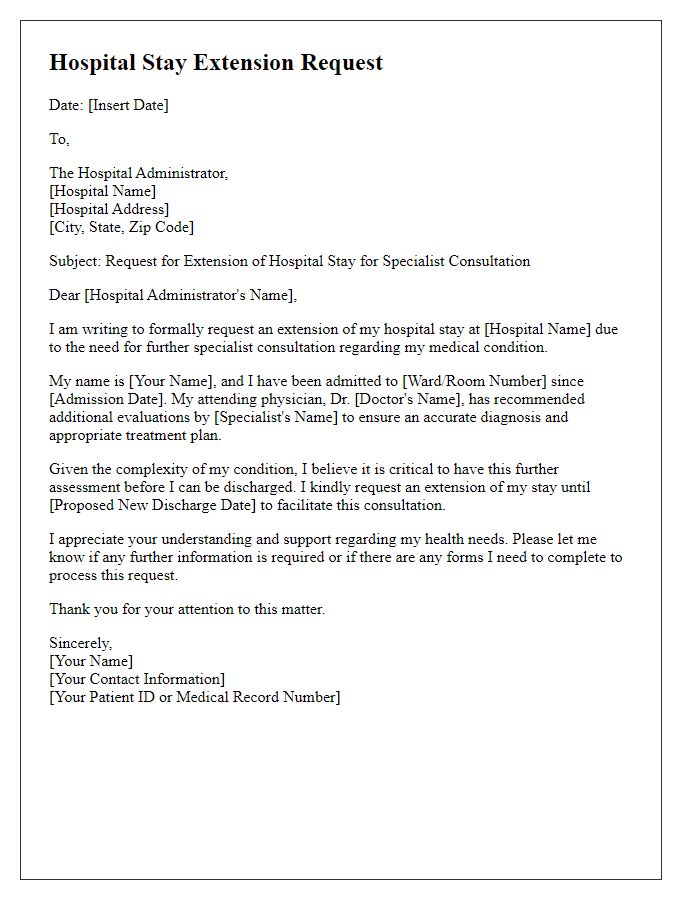
Letter template of hospital stay extension request due to complications.
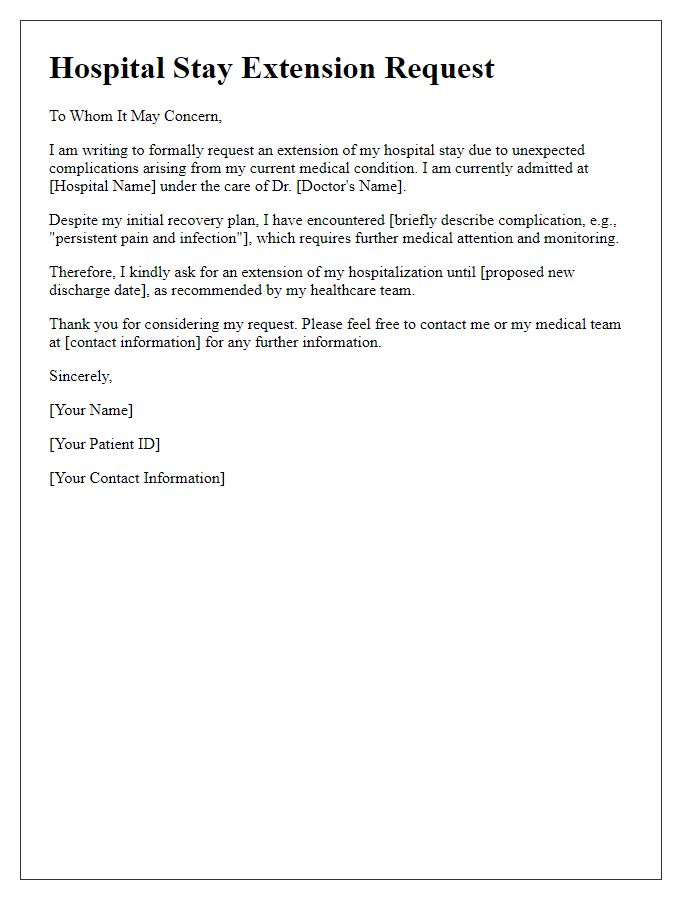

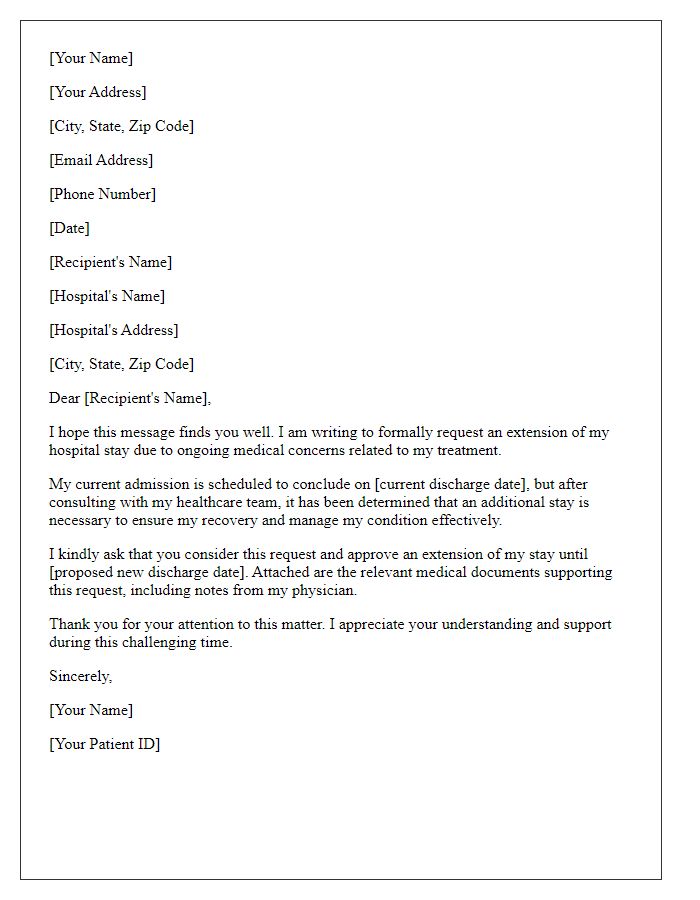
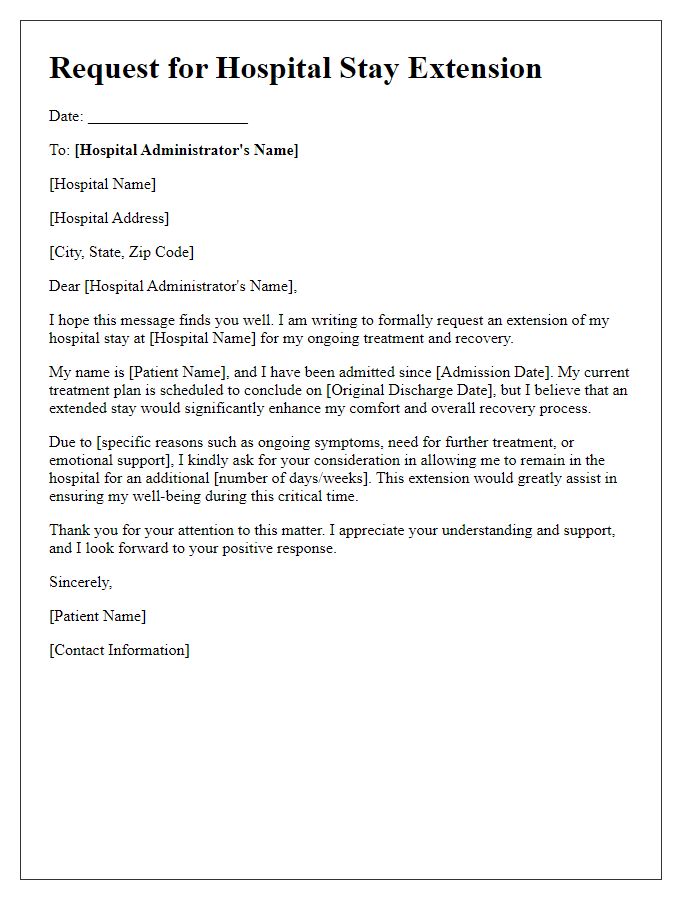
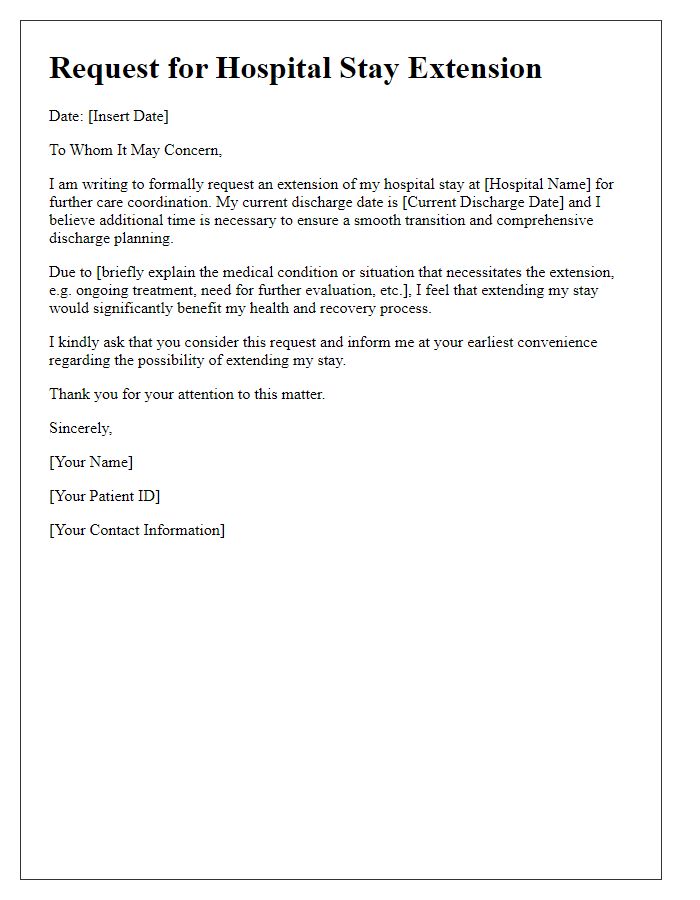


Comments